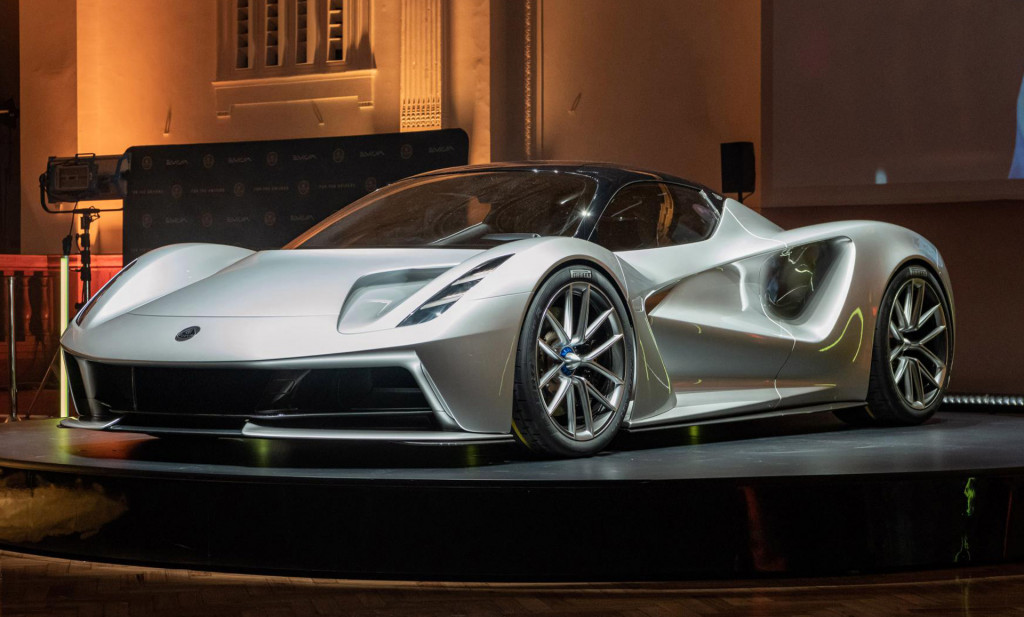Which sports car company announced plans to build (in all-electric form) the most powerful production car?
What new breakthrough is expected to bring down the cost of hybrids?
This is our look back at the Week In Reverse—right here at Green Car Reports—for the week ending July 19, 2019.
Tesla unveiled its most powerful Supercharger station yet in Las Vegas, which has 24 V3 Superchargers, along with a shady solar canopy and battery storage. Following the latest drop in federal tax credits for its cars, Tesla also dropped prices on its high-end models and dropped base versions. The entry-price of a Model 3 also went down $1,000.
CEO Elon Musk answered a question on Twitter that had been burning in many owners' minds: The company's faster new self-driving chip will be available for older cars at the end of the year.
Cross-town rival Seres—formerly known as SF Motors—hung up plans to build and sell its new SF5 electric SUV in the U.S. and suspended sales in China, as it laid off 90 workers in California.

Harley-Davidson LiveWire charging at Electrify America charging station
Harley-Davidson revealed final specs for its new electric Livewire motorcycle, and announced that initial buyers will be able to charge for free at Electrify America stations for the first two years.

Fiat Concept Centoventi
Fiat laid out production plans for its new dedicated electric city car, which is planned to replace the 500e next year—and may again be badged the 500, in some form.
Toyota expanded its electric-car plans, announcing a new deal with Chinese battery suppliers CATL and BYD to develop and purchase batteries. The company's luxury brand, Lexus, announced it's working on a dedicated EV architecture and developing in-wheel motors.

Lotus Evija
Lotus announced a new all-electric sports car that it says will have the most power of any production car, with 1,973 horsepower.
BMW named a new CEO who backed the automaker's current strategy to build electric and hybrid versions of its existing gasoline models.

Oliver Zipse
And the Trump administration continued to attempt to reconcile what the industry lobbied for versus what it now wants. NHTSA froze fines for automakers who violate fuel-economy standards, yet the EPA has likely now delayed releasing a new rule that would freeze the standards themselves going forward.
To help automakers meet those requirements, automotive supplier Continental announced a new 48-volt, full-hybrid system that should lower the cost of hybrids.
_______________________________________












